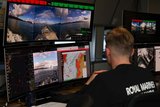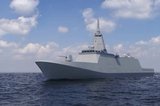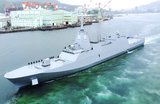Neptune expands into port crisis management training
Neptune Maritime Security is assisting major ports across Asia, the Middle East and Africa address security threats, with the delivery of crisis management training to bolster defences amid increasing instability in the regions.
The company has provided personnel to perform bespoke risk assessments and carry out specialist training for security officers and senior personnel. The work is designed to help ports manage their emergency response capabilities to scenarios including terror attacks and suicide bombers, kidnap, civil unrest and uprisings.
Jeremy Johnson, business development manager, Neptune Maritime Security, said that major port operators are becoming increasingly aware of potential risks at their facilities worldwide.
‘Companies must not only meet International Ship and Port Security (ISPS) Code standards and meet routine health and safety requirements but also ensure their emergency response plans are updated,’ he said. ‘We have a successful track record of providing specialist security and risk management solutions in ports and shore-side industrial and petro-chemical facilities around the globe, as well as our background as a trusted and professional private maritime security company in vessel protection.’
He added: ‘Using our experience in creating emergency response plans, a thorough understanding of the ISPS Code and health and safety planning, we have been able to provide clients with the necessary skills to enhance their businesses in hazardous countries while ensuring the safety of staff and operations and reducing potential liabilities.
‘Mitigation is always the safest plan of action whether it is for shipping, ports, shoreside and offshore facilities, or cruise terminals.’
Neptune services include a risk assessment, with a risk register drawn up with possible impact and company liabilities from a wide range of potential factors, including economical, operational and environmental incidents as well as potential disruption caused by local community action which could affect production. The client is then able to select training options, with exercises carried out in the classroom, as well as in ‘real world’ situations.
The services are part of Neptune’s expansion plans as it aims to drive up standards in the maritime security sector and diversify its operational range. The company provides specialist security services, including armed protection, for the international maritime community.
More from Naval Warfare
-
![NATO tests use of “undetectable, jam-proof” laser communication in maritime scenarios]()
NATO tests use of “undetectable, jam-proof” laser communication in maritime scenarios
As part of its effort to better prepare its capabilities for operations in contested and congested scenarios, NATO evaluated a Lithuanian ship-to-ship terminal designed to not be susceptible to enemy interference.
-
![US Navy advances with the Harpoon Service Life Extension Programme]()
US Navy advances with the Harpoon Service Life Extension Programme
The US Navy plans to improve Harpoon’s anti-ship and land attack capabilities by equipping the missiles with sensors and technologies required for succeeding in future battlespace.
-
![Mitsubishi eyes future with Australia’s Mogami selection]()
Mitsubishi eyes future with Australia’s Mogami selection
With Australia’s selection of the Mogami-class for Project Sea 3000, Mitsubishi is investigating local production in the next decade as potential export opportunities emerge.
-
![Thales’ new Sonar 76Nano could equip UK Royal Navy on anti-submarine warfare missions]()
Thales’ new Sonar 76Nano could equip UK Royal Navy on anti-submarine warfare missions
The new sonar is designed to equip uncrewed underwater vessels, with the potential to be used by the Royal Navy for its Atlantic Bastion and Atlantic Net missions.
-
![Hanwha wins Australian government approval to increase its stake in Austal]()
Hanwha wins Australian government approval to increase its stake in Austal
The contract would mean the two shipbuilders can collaborate strategically and enhance shipbuilding capabilities in Western Australia.























